Welcome To Competition Day X
Author:
Unlock your full potential by engaging with our experts and community! Have questions about your fitness journey or looking for expert advice on weightlifting techniques? Don’t hesitate — leave a comment below and Sergii Putsov will provide a personalized answer and insights to help you reach your goals.
Torokhtiy is reader-supported. Some links are affiliate links, and we may earn a commission at no extra cost to you. See our disclosure page for details.
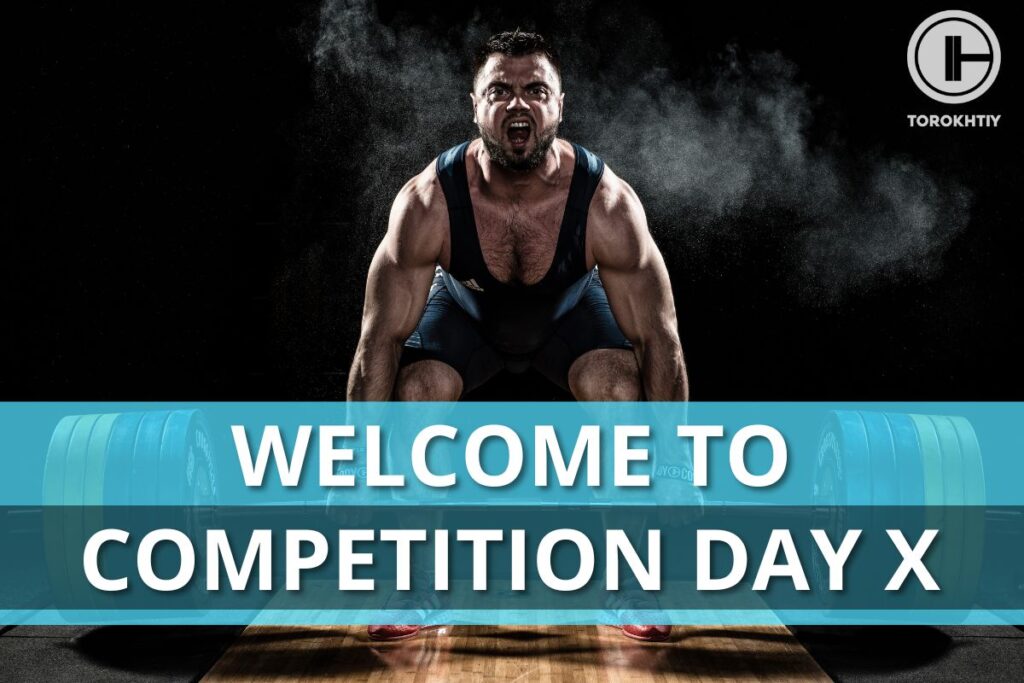
Physical activity is one of the most crucial factors for good health, active longevity and toned vital functions.
It is obvious that as a professional weightlifter and weightlifting coach I can’t help mentioning that everyone must practice only the snatch and the clean & jerk as well as the clean pull and deep squats.
But I believe that movements in all their diversity are beneficial for your health if this is a properly organized process. You must move and enjoy it. Like swimming? That’s good. Fond of dancing? Do it! Feel like doing yoga? That’s even better! My experience showed that there can be children engaged in weightlifting after gymnastics, as well as mature guys that decided to approach the barbell after 15 years of triathlon. It’s important to keep in mind the fact that not only are our preferences changed with years but also the requirements to movement form and quality become significantly higher.
Follow us!
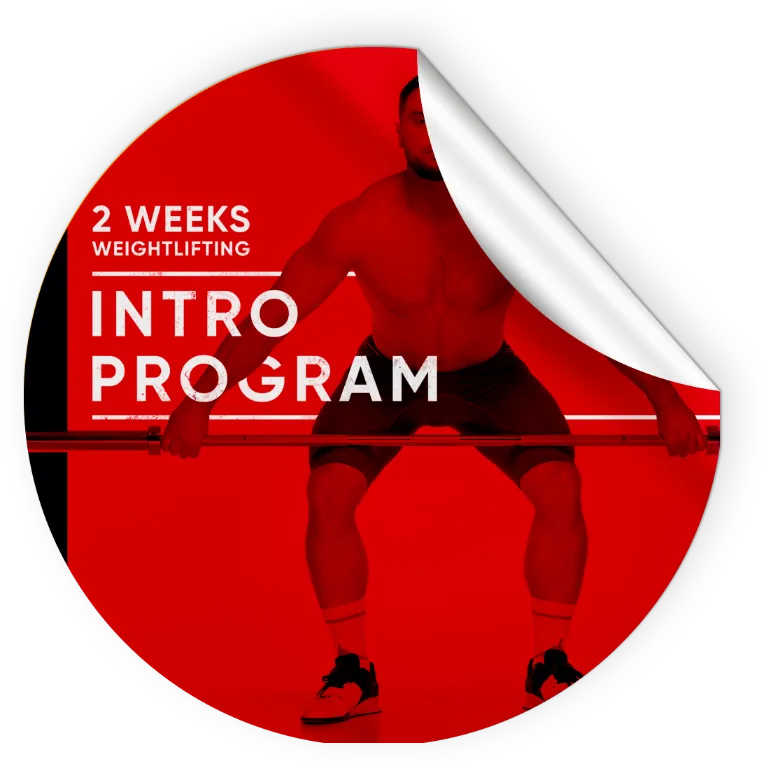
Free!
Get a 2-week Weightlifting Program as a bonus for the subscription to kickstart your training plan!

Free!
There is also an interesting story with a training goal. To hear that people workout “for themselves”, “for health”, “to prevent back pain” is something very common in fitness. In functional fitness with all joking aside it is “I work like hell not to limit myself in the food I eat”. Surely it is not the sole goal.
You may like it:
- Detailed Olympic Weightlifting Program For Beginners
- 12-Week Weightlifting Program For Women (Detailed Example)
- Create Your Olympic Weightlifting Program (Examples Included)
The training process focused on competitions is one of the fundamental traits of any sport. Everything is crystal clear when children come to sport – it’s all about building a character, tempering willpower and creating a successful way of life. But it is more complex when we talk about adults… Humans are strange creatures. First, we struggle hard to create our lives where everything is “smooth and clear”: family, house, reliable job and income, but then we try to “spice” this life up and add some extreme into it. And that’s exactly the point where a question “should I make an attempt to run a half-marathon?” or “should I try myself in a weightlifting competition?” emerges in our heads, and frankly speaking, I am thrilled by both of these ideas!!!
For most of us, competitions are associated with something super-official and grandiose. When I was 17 I remember coming back home from the regional competitions and my friends were always joking (with a little bit of reproach) «So when will you finally go to the Olympics?».
In fact, competition is an event that has only athletes that are willing to compete, referees (sometimes only one), and a stopwatch. That’s how usually a small gym competition looks like. Our coach called such events «open platform». This is where the majority of rookies have their debut.
It is a sure thing that experience and results of each separate athlete grow together with the rank of competitions he participates in. I confess that I walked my way up from «open platforms» and regional competitions to the Olympic Games. As you can imagine the organizational level of competitions increases with the sportsmanship growth, so do responsibility and stress levels. Mistakes become more unforgivable (and they are inevitable) and the level of understanding becomes deeper if an athlete wants and is capable of making conclusions from his experience.
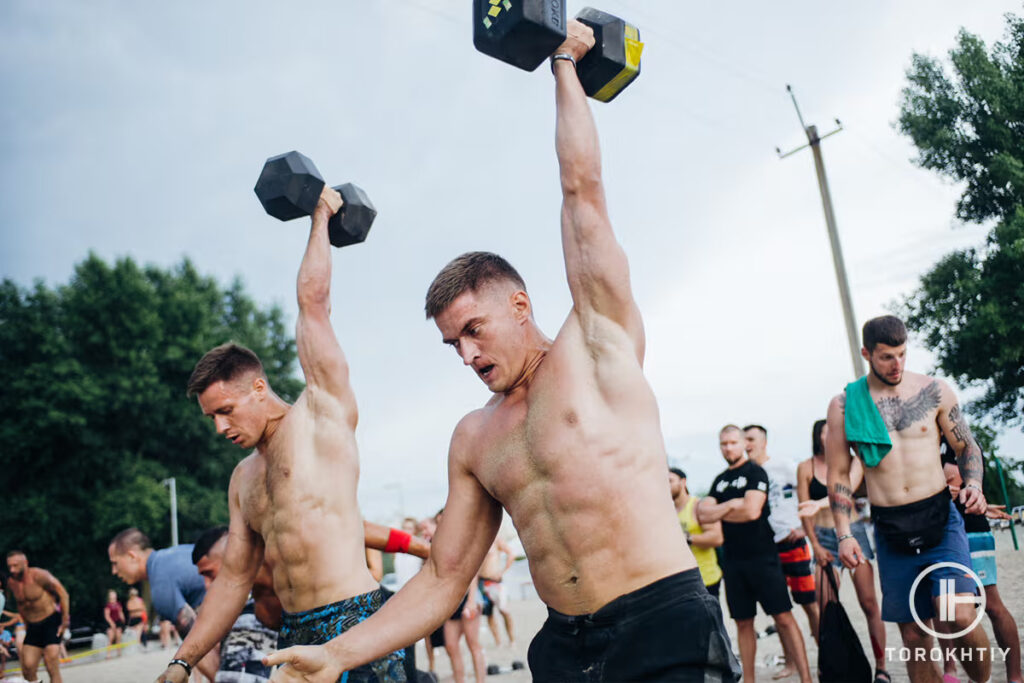
Obviously, I had no idea about all these things when I was 15 and never thought that I would put it out in my future book.
I believe that if you achieved something and you are really passionate about what you are doing and want it to live and develop further you must share your experience and transfer your knowledge to those who are on the same wavelength.
This was one of the reasons for me to write the «Competition Day X» book. If we are theoretically prepared and possess all necessary knowledge about a forthcoming event the stress that we will experience is not going to be so critical.
The real competition result is something beyond all the kilos you are capable of lifting. This is a complex of many factors:
- competition rank;
- rival levels;
- results density;
- your physical and mental condition;
- warm-up quality;
And many more…
Actually, a result and a place you get in a competition is a complex of factors and circumstances, and the majority of them can be foreseen or be prepared to beforehand.
My book does not provide you with answers to all the questions that may be aroused, but there are a plethora of examples where I faced unusual and stressful situations during competitions or preparation and instances of lifehacks that I used to overcome them… and some even took a couple of tries before success)))
Many rookies have no clear understanding that weightlifting competition is something more than 3 attempts in the snatch and the clean & jerk. To be more accurate, many rookies are aware of this fact but they don’t realize that the result of many months of hard work must be shown here and now, and you have 36 seconds left to attempt… it is 35 already… 34… Only competitive athletes can understand such moments, and that’s why I describe them very thoroughly.
Let me explain to you even more about how my new book works and what you can find on its pages.
Whom is the COMPETITION DAY X book designed for?
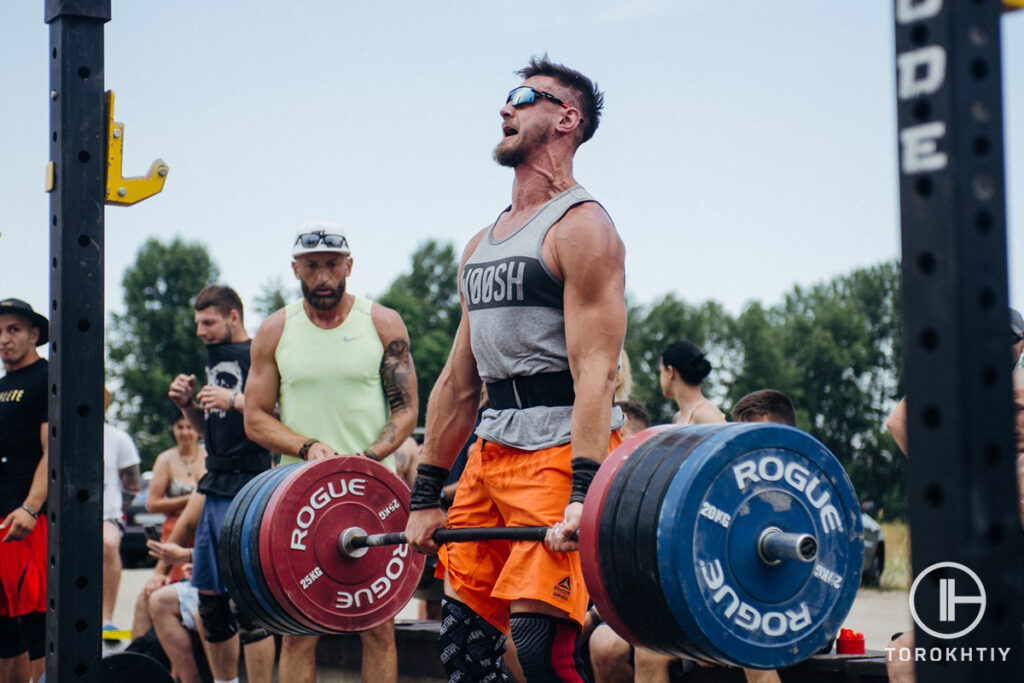
COMPETITION DAY X is designed for athletes that want to compete in weightlifting. It is also suitable for beginner coaches that want to get into the depth of competitive preparation structure and a system to integrate it into a training process.
What is mental training?
Mental training is as important as your physical training. It starts from the very moment you decided to participate in a competition and it constitutes an essential part of your training. The development of your mental fortitude takes place not only when you compete (although it occurs there, mainly), but you can learn many nuances that you can work out and control in your home gym.
1. Three preparation periods
Competitive mental preparation should be trained straight from the start of a training cycle. A full cycle usually consists of three periods: basic, pre-competition and competition. It takes about two or three months for an amateur athlete to prepare for competition, whereas an advanced or professional athlete requires much more time for this. An athlete has many skills to master and work out during the time of training periodization, but they will definitely help him on the platform at the decisive moment.
2. Weight categories
Preparing for competitions is of the utmost importance to decide your weight category. Keep in mind that weight category must be as convenient as possible for the rookies, whereas professional athletes can additionally gain or cut weight depending on competitiveness in their weight category and goals they set up for this competition.
3. Competition day
The way you handle anxiety and stress on the platform and in a warm-up area is one of the biggest obstacles on your way to a positive experience. I think that the more information you have about how the competition goes the fewer surprises and disappointments you will have.
4. Travels and time zones
It is an important chapter of this book that will describe the ways to travel to the competition. The first one – by car, bus or train when you participate in a regional competition. The second – by plane when you travel to the international level competition, where you will compete in a different time zone.
5. Transition period
Regardless of the competition result, whether they were successful or not, you still gained a precious experience that will help you to be better next time, but only if you make conclusions and take them into account in your next preparation.
Conclusion: in this book I share my thoughts about my own competition experience. And I want this information to help you create your own unique formula of success. I am aware that some of the stories and examples may seem strange or absurd at first glance. But I am also sure that you will find a ton of useful information, advice and solutions!
WELCOME TO COMPETITION DAY X
Sincerely yours Oleksiy Torokhtiy
Related articles:
- Optimal Time For Training: When And Why?
- Top 5 Mistakes In Olympic Lifting
- How To Determine Your Pr
- 5 Reasons To Skip A Training
You might be interested in:
Why Trust Us?
With over 20 years in Olympic weightlifting, strength training, nutrition coaching, and general fitness our team does its best to provide the audience with ultimate support and meet the needs and requirements of advanced athletes and professional lifters, as well as people who strive to open new opportunities and develop their physical capabilities with us.
By trusting the recommendations of our certified experts in coaching, nutrition, and sports training programming, as well as scientific consultants, and physiotherapists, we provide you with thorough, well-considered, and scientifically proven content. All the information given in the articles concerning workout programming, separate exercises, and athletic performance, in general, is based on verified data.
The product testing process is described in more detail here.
Author: Sergii Putsov
Head of Sport Science, PhD
Best Results: Snatch – 165 kg,
C&J – 200 kg
Sergii Putsov, Ph.D., is a former professional weightlifter and National team member, achieving multiple medals in the 94 kg weight category at national competitions. With a Master’s degree in “Olympic & Professional Sport Training” and a Sport Science Ph.D. from the International Olympic Academy, Greece, Sergii now leads as the Head of Sport Science. He specializes in designing training programs, writing insightful blog articles, providing live commentary at international weightlifting events, and conducting educational seminars worldwide alongside Olympic weightlifting expert Oleksiy Torokhtiy.



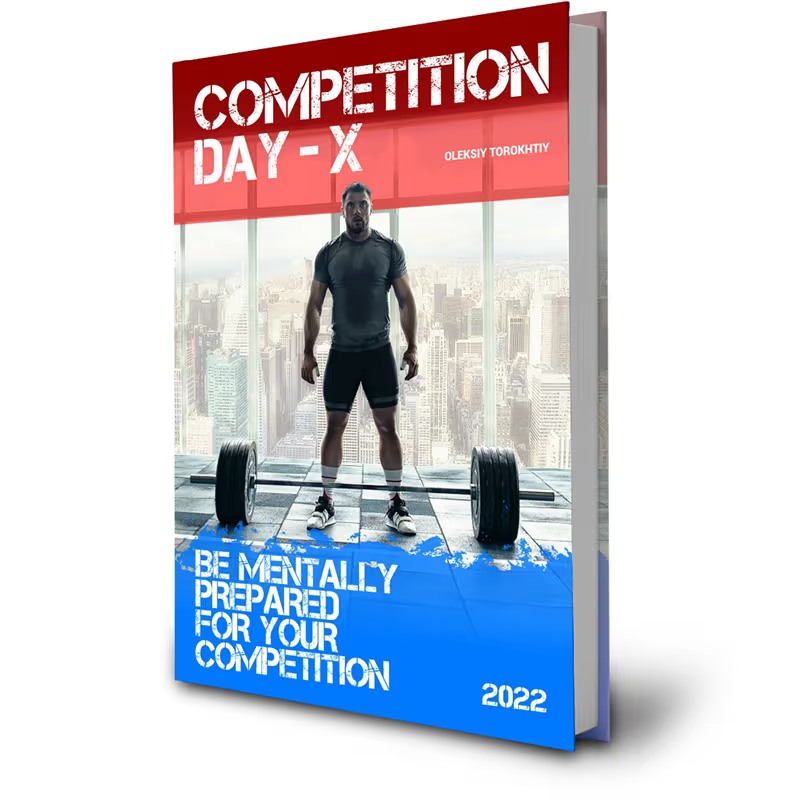
Still have questions after reading our article? Unlock your full potential by engaging with our experts and community! Don’t hesitate — leave a comment below and Sergii Putsov will provide a personalized answer and insights to help you reach your goals.